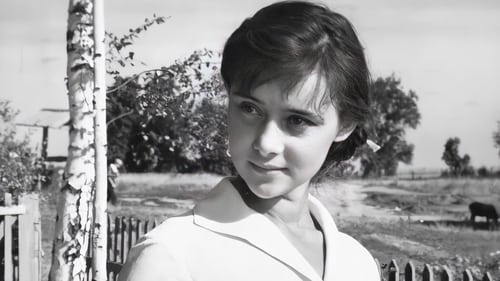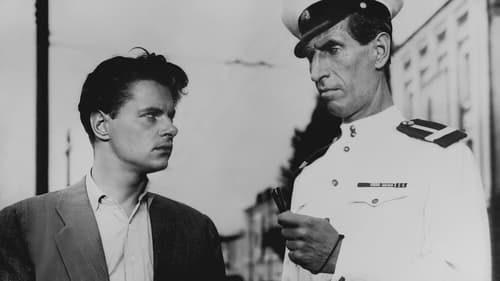
Conductor
For Vera — a student of the Leningrad Pedagogical Institute, first love instead of joy and happiness brings disappointment — and it was enough to have one first deception, and before a self-confident girl changes, becomes suspicious and closed. She no longer believes in anyone and runs away from people — having left the institute, Vera and her small daughter leave for a remote village where no one knows her. Soon she has a thin and responsive friend — a teacher at a neighboring school, Aleksei Nikolaevich...

Conductor
Chief accountant Porfiry Petrovich Smirnov-Alyansky, who took a good walk on the anniversary of his colleague cashier Ivan Zakharovich Vodnev, climbs into the traffic controller's booth and disrupts traffic on one of the streets of Leningrad. However, the guard Vasiliy Shaneshkin mistakenly delivers to the police station not an escaped offender, but a quite decent cashier. In addition, Vodnev, offended by the police, turns out to be the father of the bride Shaneshkin — Katya. Vasiliy admits his guilt, but, not daring to explain himself, leaves the angry Ivan Zakharovich with bad thoughts about the Soviet police. Fortunately, the young sergeant will soon have an opportunity to prove to others the responsibility and conscientiousness of the police officers.

Conductor
The young machine operator Fyodor Soloveikov marries Stesha from a neighboring village and moves to live with her parents in a house. Young and energetic, he suffocates in the petty bourgeois world of the family, living away from collective farm life. Quarrels arise between young people, where old men pour oil of discord. Not receiving proper support from his wife, Fyodor leaves home.

Music
A strange film as beautifully jumbled as the political environment out of which it sprang, like a handsome weed, "Son of Mongolia" is a travelogue of unique and authentic richness, an amusing Far Eastern horse opera of picaresque character, and a scientifically valuable anthropological document in which the Soviet film industry may well take pride. Objective and modern, yet permeated with a fresh folk quality that goes back to the reckless and lovely Tartary of Genghis Khan, it rises above all its inescapable Soviet-isms into a new frontier region of plains, mountains, tents and herds, a world still appreciably beyond the range of Western cameras.



